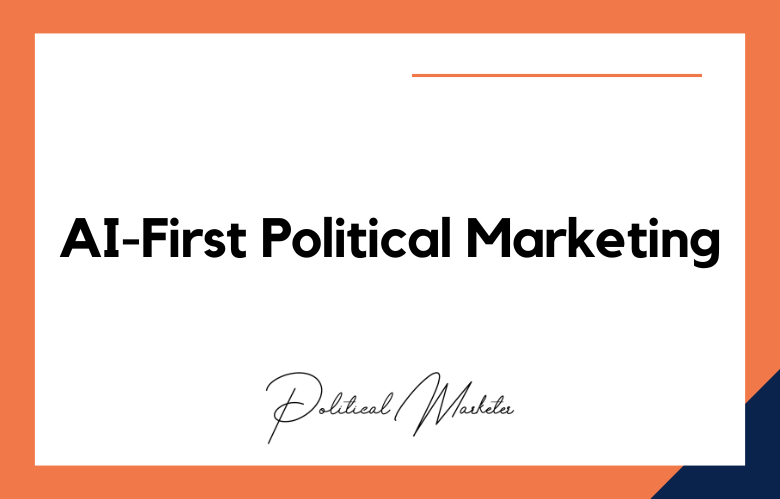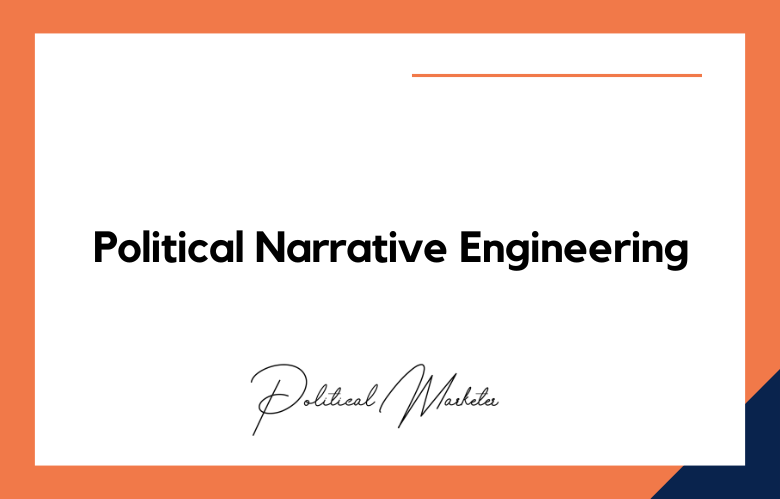In the ever-evolving landscape of politics, artificial intelligence (AI) has become increasingly prevalent, reshaping the way political campaigns are conducted and elections are contested. As we navigate this new frontier, the AI’s Influence on Political Campaigning presents unprecedented opportunities and ethical challenges that demand careful consideration.
AI’s Influence on Political Campaigning: Navigating a New Frontier
From targeted advertising and voter profiling to sentiment analysis and predictive modeling, AI technologies offer political campaigns powerful tools to understand, engage, and mobilize voters on a scale never before imagined. However, using AI in political campaigning also raises concerns about privacy, fairness, and manipulating public opinion.
In this guide, we’ll delve into the complex relationship between AI and political campaigning, exploring how AI technologies are transforming the electoral process and shaping the future of democracy. We’ll examine the opportunities and challenges associated with AI-driven campaign strategies and discuss the implications for political discourse, voter participation, and democratic governance.
Join us as we navigate this new frontier of AI’s influence on political campaigning, seeking to understand its potential impact on the electoral process and society. By shedding light on the opportunities and challenges posed by AI in politics, we can better navigate the complexities of this rapidly evolving landscape and safeguard the integrity of democratic institutions in the digital age.
The Rise of AI in Political Campaigning: An Overview
In recent years, integrating artificial intelligence (AI) into political campaigning has fundamentally transformed how political actors engage with voters, shape public discourse, and mobilize support. This intersection of technology and politics represents a significant shift in the electoral landscape. AI-driven tools and techniques are increasingly prominent in campaign strategies and decision-making processes.
This overview seeks to provide insight into the rise of AI in political campaigning, exploring the various ways in which AI technologies are being utilized by political parties, candidates, and advocacy groups to achieve their objectives. From data analytics and voter targeting to personalized messaging and predictive modeling, AI offers a range of capabilities that enable campaigns to reach and persuade voters more effectively.
However, the growing reliance on AI in political campaigning also raises important questions about transparency, accountability, and the ethical use of data. Concerns about privacy violations, algorithmic bias, and the potential for manipulation have sparked debates about regulating and overseeing AI-powered campaign tactics.
Harnessing AI for Political Campaign Success in the Digital Age
Harnessing AI for political campaign success in the digital age represents a pivotal opportunity to revolutionize how campaigns engage with voters, communicate their messages, and mobilize support. As AI technologies evolve, political campaigns can leverage data analytics, predictive modeling, and targeted advertising to optimize their strategies and maximize impact.
One of AI’s key benefits in political campaigning is its ability to analyze vast amounts of data to identify trends, patterns, and voter preferences with unprecedented accuracy. By harnessing AI-driven insights, campaigns can tailor their messaging, outreach efforts, and strategies to resonate with specific demographic groups and communities.
Moreover, AI-powered tools such as natural language processing and sentiment analysis enable campaigns to monitor social media conversations, assess public sentiment, and respond to emerging issues in real time. This agility and responsiveness allow campaigns to stay ahead of the curve, adapt to changing dynamics, and capitalize on opportunities.
Ethical Considerations: AI Technology in Political Campaigns
As AI technology continues to reshape various aspects of society, its impact on political campaigns is profound and contentious. In the modern era of digital campaigning, AI algorithms are increasingly utilized to analyze vast amounts of data, target specific voter demographics, and optimize messaging strategies. While AI promises to enhance campaign efficiency and effectiveness, it also raises a host of ethical considerations that cannot be overlooked.
This exploration delves into the ethical implications of AI technology in political campaigns, examining issues such as data privacy, algorithmic bias, manipulation, and transparency. By critically examining these moral dilemmas, we aim to foster a deeper understanding of the ethical challenges inherent in leveraging AI technology for political gain and advocate for responsible and accountable use of AI in the political sphere.
AI Vs. Traditional Campaigning: A Comparative Analysis
The emergence of artificial intelligence (AI) has introduced new dynamics and strategies in political campaigning that challenge traditional approaches to reaching and mobilizing voters. This comparative analysis explores the differences between AI-driven campaigning and traditional methods, highlighting each approach’s strengths, weaknesses, and implications.
Traditional campaigning relies heavily on human intuition, experience, and personal interactions to sway voters. Strategies often involve door-to-door canvassing, phone banking, rallies, and media advertisements based on demographic data and broad messaging. While these methods have been influential in the past, they can be time-consuming and resource-intensive and may not always yield precise targeting or measurable outcomes.
In contrast, AI-driven campaigning leverages data analytics, machine learning algorithms, and predictive modeling to identify voter preferences, tailor messaging, and optimize outreach efforts. AI can segment audiences, predict behavior, and deliver personalized content at scale by analyzing vast data from social media, voter rolls, and other sources. This approach promises greater efficiency, effectiveness, and responsiveness to changing trends and voter sentiments.
Predictive Analytics: The Powerhouse Behind AI in Political Campaigns
Predictive analytics is the powerhouse behind AI in political campaigns, revolutionizing how campaigns strategize, communicate, and mobilize voters. By leveraging vast amounts of data and sophisticated algorithms, predictive analytics enables campaigns to forecast outcomes, identify trends, and target resources with unparalleled precision and effectiveness.
At the heart of predictive analytics lies the ability to analyze historical data and identify patterns that offer insights into voter behavior, preferences, and attitudes. By examining demographics, past voting behavior, social media activity, and issue preferences, campaigns can develop predictive models that forecast how individuals are likely to vote and what issues are most salient to them.
These predictive models empower campaigns to optimize their outreach efforts, allocate resources strategically, and tailor their messaging to resonate with specific voter segments. Whether identifying swing voters in key battleground states or mobilizing supporters in target demographics, predictive analytics enables campaigns to make data-driven decisions that maximize impact and drive electoral success.
Navigating the Regulatory Landscape: AI and Political Campaigns
In an era of rapid technological advancement and digital innovation, the intersection of artificial intelligence (AI) and political campaigns presents myriad regulatory challenges and complexities. Data privacy, transparency, fairness, and electoral integrity concerns emerge as AI technology becomes increasingly integrated into campaign strategies.
Navigating this regulatory landscape requires a nuanced understanding of existing laws, regulations, and ethical guidelines governing the use of AI in political contexts. This exploration delves into the regulatory considerations surrounding AI in political campaigns, examining the evolving legal frameworks, enforcement mechanisms, and ethical standards aimed at safeguarding democratic principles and protecting citizens’ rights.
By dissecting these regulatory challenges, we aim to provide insight into the complexities of AI-driven political campaigning and advocate for responsible and ethical practices that uphold democratic values and promote transparency and accountability.
AI-Powered Messaging Strategies for Political Campaigns
AI-powered messaging strategies are revolutionizing political campaigns, offering unprecedented opportunities to engage voters, tailor messages, and drive support. Here are vital strategies leveraging AI in political messaging:
Sentiment Analysis
AI-powered sentiment analysis tools analyze social media conversations, news articles, and other sources to gauge public sentiment toward candidates, policies, and issues. Campaigns can use this data to shape their messaging, address concerns, or capitalize on positive sentiment.
Audience Segmentation
AI algorithms can segment voters based on demographics, behavior, and interests, allowing campaigns to craft personalized messages tailored to specific audience segments. Campaigns can maximize their impact and effectiveness by delivering targeted messages that resonate with different voter groups.
Message Optimization
AI tools can optimize messaging by testing ads, emails, and social media post variations to identify the most compelling content. By analyzing engagement metrics and feedback in real time, campaigns can refine their messaging strategies and ensure they resonate with their target audience.
Dynamic Content Generation
AI-powered content generation tools can create personalized messages at scale, automatically customizing content based on individual voter profiles and preferences. This allows campaigns to deliver relevant and timely messages to voters across various channels, maximizing engagement and impact.
Predictive Analytics
AI-driven predictive analytics can forecast voter behavior and preferences, helping campaigns anticipate how messages resonate with specific voter segments. By leveraging predictive models, campaigns can tailor their messaging strategies to appeal to the motivations and concerns of key demographics.
Conclusion
The influence of AI on political campaigning represents a new frontier in the ever-evolving landscape of elections and democracy. As AI technologies advance, political campaigns leverage data analytics, machine learning algorithms, and targeted messaging to engage voters in unprecedented ways.
While AI holds immense potential to enhance voter outreach, communication, and campaign efficiency, it also raises ethical concerns regarding privacy, misinformation, and manipulation. As such, navigating this new frontier requires a delicate balance between innovation and responsibility, ensuring that AI is used ethically and transparently to empower voters and strengthen democratic processes.










